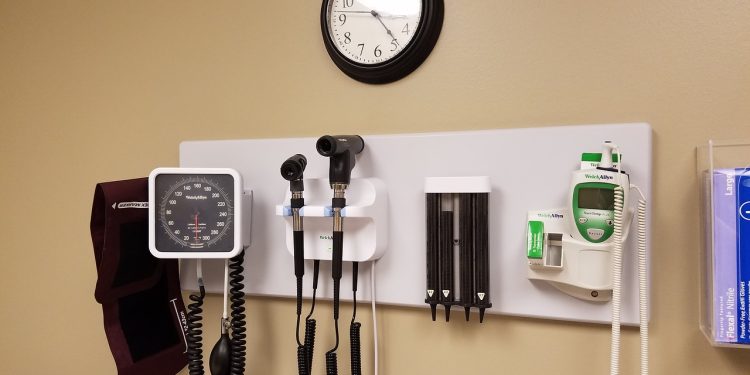For many men, the concept of visiting a doctor regularly doesn’t sit high on their list of priorities. Often, unless a health issue becomes impossible to ignore, many men tend to avoid medical appointments, believing that they are healthy enough or simply too busy. However, regular health checkups are more than just an opportunity to confirm that everything is functioning well; they are a vital part of maintaining long-term health and preventing problems before they become serious. Taking the proactive step to visit a healthcare provider on a regular basis could be the key to leading a longer, healthier, and happier life.
Prevention Over Cure
The old saying “prevention is better than cure” holds true when it comes to men’s health. Regular health checkups offer a preventive approach, allowing for early detection of health problems that might not yet be showing symptoms. Conditions like high blood pressure, diabetes, and high cholesterol can all develop without noticeable signs but pose significant health risks if left untreated.
Screenings such as blood pressure monitoring, blood tests, and cholesterol checks help identify these silent health threats early on, providing a chance to manage or even reverse them before they lead to more serious complications. This proactive approach can prevent issues such as heart disease, stroke, and other chronic illnesses. Instead of treating a problem after it has escalated, regular checkups can catch potential concerns at an early stage, making them easier to address and minimizing their impact on quality of life.
Understanding Age-Related Health Changes
Men go through various biological changes as they age, and some health risks increase with time. While you may have felt invincible in your 20s and 30s, your 40s and beyond bring new challenges that require a different level of care. Issues like declining testosterone levels, increased risk of cardiovascular disease, and prostate health concerns become more prevalent as men age.
Regular health checkups help monitor these age-related changes, allowing healthcare providers to offer guidance on lifestyle modifications or necessary treatments to mitigate risks. For instance, regular screenings for prostate health become increasingly important after the age of 50, as prostate cancer is one of the most common cancers in men. Additionally, discussing any changes in libido, energy levels, or mood with a healthcare provider can help address hormonal imbalances and ensure overall well-being.
Mental Health Matters Too
It’s not just physical health that benefits from regular checkups—mental health is equally important, yet often overlooked. Men are generally less likely to discuss their mental health issues, whether due to societal norms or a personal desire to appear strong. Regular health checkups provide a confidential space to address concerns like anxiety, depression, and stress that may be impacting your quality of life.
A healthcare provider can be a valuable resource for mental health, offering advice, referrals to counselors, or even medication when appropriate. Opening up about your mental state during a regular checkup can also be a significant first step in breaking down the stigma surrounding men’s mental health, ultimately leading to a better quality of life. Health isn’t solely defined by the absence of disease; emotional well-being plays a crucial role in leading a fulfilling life.
Building a Relationship with Your Healthcare Provider
Having a consistent healthcare provider offers many advantages. Over time, a trusted healthcare professional gains insight into your health history, lifestyle, and individual risk factors, making it easier to detect changes and offer personalized advice. This type of relationship can lead to better healthcare outcomes because your doctor will be able to spot patterns and changes in your health that you might not notice yourself.
Moreover, building a strong relationship with a healthcare provider can make it easier to discuss uncomfortable topics. Many men avoid visiting the doctor due to embarrassment over discussing issues such as sexual health, digestive concerns, or other potentially awkward topics. A trusted doctor-patient relationship can help remove that discomfort, encouraging open communication and a more comprehensive approach to overall health.
Managing Risk Factors Effectively
Many chronic diseases that affect men later in life—such as cardiovascular disease, diabetes, and certain types of cancer—are influenced by modifiable lifestyle factors. Regular checkups can help you identify risk factors like smoking, excessive alcohol consumption, poor diet, and a sedentary lifestyle. Your healthcare provider can work with you to make sustainable lifestyle changes to minimize these risks.
For example, if high blood pressure is detected during a routine checkup, you may be advised to reduce salt intake, manage stress levels, or incorporate more physical activity into your routine. Early intervention in addressing these risk factors can significantly lower the chances of developing a serious illness, making a big difference in your long-term health.
Essential Screenings and Tests
Regular health checkups include a variety of important screenings and tests that vary based on age, health history, and family risk factors. Understanding which tests are necessary can help you stay proactive about your health.
- Blood Pressure Monitoring: High blood pressure is often called the “silent killer” because it can develop without symptoms, leading to serious problems like heart attacks or strokes if left untreated. Regular monitoring helps keep blood pressure in check.
- Cholesterol Testing: Elevated cholesterol levels can lead to the development of plaques in the arteries, increasing the risk of cardiovascular events. Cholesterol tests are crucial for determining heart disease risk and implementing dietary or medical interventions as needed.
- Diabetes Screening: Diabetes is a growing health concern, particularly for men over 40. Blood sugar tests help determine if you’re at risk for or already have diabetes, allowing for prompt lifestyle changes or treatments to manage the condition.
- Prostate Health: Prostate screenings are vital for men, especially over the age of 50. Early detection of prostate issues can lead to more effective treatment and a better prognosis.
- Colon Cancer Screening: Men should begin screening for colon cancer at age 50, or earlier if there is a family history. A colonoscopy can detect precancerous polyps and significantly reduce the risk of developing colon cancer.
- Testosterone Levels: Low testosterone can lead to fatigue, low libido, and decreased muscle mass. Checking testosterone levels can help diagnose and treat potential hormone imbalances, improving quality of life.
Addressing Common Health Myths
A major reason why many men avoid regular health checkups is due to misconceptions about health and masculinity. Some believe that seeing a doctor is only necessary when symptoms are severe, or that “toughing it out” is the manly thing to do. Others may assume that living a healthy lifestyle means they’re immune to potential health issues.
The truth is that even the healthiest individuals can face unexpected health concerns, and regular screenings are the best way to catch potential problems early. Visiting a healthcare provider should not be seen as a sign of weakness; rather, it is an important, proactive measure that demonstrates a commitment to one’s health and well-being. Normalizing regular checkups among men can help change the narrative and lead to improved outcomes for countless individuals.
Lifestyle Recommendations Based on Checkup Results
Another significant benefit of regular health checkups is the ability to receive personalized lifestyle advice based on the results. If your healthcare provider notices elevated cholesterol, they may recommend dietary adjustments like reducing saturated fat intake or incorporating more omega-3-rich foods. If weight gain is an issue, you could be referred to a nutritionist or offered guidance on increasing physical activity.
Lifestyle recommendations provided during checkups are tailored to your individual health needs, making them far more effective than generic health advice. These small but impactful changes can help you maintain optimal health, reduce the risk of disease, and improve overall energy and well-being.
Overcoming Barriers to Regular Checkups
Men often cite various reasons for avoiding regular checkups, ranging from time constraints to fear of what might be discovered. However, overcoming these barriers is crucial to ensuring long-term health. If time is an issue, consider scheduling appointments well in advance or seeking clinics that offer flexible hours. For those who experience anxiety about medical visits, bringing a trusted friend or family member along can provide support.
It’s important to remember that healthcare providers are there to help, not judge. Whatever concerns you might have, they have heard them before and are equipped to offer guidance, support, and treatment options. The peace of mind that comes from knowing you are doing everything you can to stay healthy far outweighs any temporary discomfort associated with a checkup.
Taking Charge of Your Health
Regular health checkups empower men to take charge of their health by providing insight into their current health status and potential risks. They offer a way to stay informed, proactive, and prepared, rather than reactive. Men who prioritize regular checkups are not only more likely to catch and manage health issues early but also have the opportunity to make informed decisions about their health, leading to improved quality of life.
Every man deserves to live a long and healthy life, and regular health checkups are a crucial step toward that goal. It’s time to put aside the reluctance, book that appointment, and take the proactive steps necessary to care for both physical and mental well-being. Your future self will thank you.






